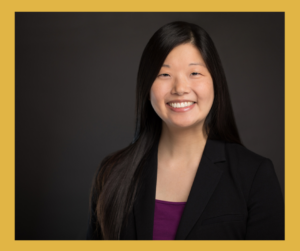
By Joan Chang, Senior Staff Attorney, Health Unit
Our aim in the CLA SoCal Health Unit is to assist Orange County residents and families to get the health care services they need and to which they are entitled, and at the same time work to identify systemic health care issues. Through the story of our client, Rudy (fictitious name), I will share how we were able to effectively carry these out.
The Case Story, Individual Advocacy
Rudy is a disabled 64 year old who had both Medi-Cal and Medicare insurance. When he came to us for assistance he was distressed and experiencing two barriers to his health care: (1) he was improperly terminated from Medi-Cal during the COVID-19 Public Health Emergency (PHE); and (2) his Denti-Cal dentist was billing him for his 250% Working Disabled Program Medi-Cal premiums, incorrectly treating it like a Medi-Cal Share of Cost (SOC). The prospect of dealing with these two issues was overwhelming for Rudy and he was clearly in urgent need of assistance.
We screened him and determined that he was still eligible for Medi-Cal under the 250% Working Disabled Program and so escalated the termination of his coverage to our county liaisons. They responded and we ensured that Rudy’s Medi-Cal was not only timely reinstated but also retroactive during his deeming period, so there would be no issues of gaps in his health coverage.
To address the second issue, we contacted Rudy’s dentist office to educate them on the difference between Medi-Cal premiums vs. Medi-Cal Share of Cost. We cited to various Medi-Cal provider manuals and guidance clearing indicating that dentists and providers are NOT to charge beneficiaries the premiums that appear on the Medi-Cal eligibility website.
The dentist office was not convinced so I referred them to the Denti-Cal Provider Line for education. Unfortunately, the Denti-Cal Provider Line staff were also not familiar with the 250% Working Disabled Program either and referred Rudy to the County. In response, we filed a formal Denti-Cal complaint requesting intervention and for training of Denti-Cal staff.
Denti-Cal answered by sending the dentist office notice on improper billing of Medi-Cal beneficiaries. Pursuant to our advocacy, the dentist stopped billing Rudy, saving him from the illegal billing.
Separately, CLA SoCal advised Consumer to request for a premium waiver during the Public Health Emergency, so that he can avoid paying $75/mo. and get a refund for any paid premiums during the Public Health Emergency.
Rudy was set at ease knowing that with both issues his situation was rightfully resolved in his favor and was grateful to be able to go on with his life with the assurance that his health care would be properly covered.
The Systemic Advocacy Resulting from the Case
Along with helping Rudy with his individual case issues, we identified the following statewide issues and advocated to address them:
- ISSUE #1: Denti-Cal staff not knowing the difference between a 250% Working Disabled Program premium vs. Medi-Cal Share of Cost
When we called the Denti-Cal Provider Line to request for assistance, the representative was not familiar with the difference. Additionally, when the dentist office reached out to Denti-Cal, they were inappropriately referred to the County.
We advocated for additional training on this issue. Denti-Cal agreed and trained Denti-Cal Telephone Service Center staff on the 250% WDP premiums.
Additionally, DHCS also agreed to work on a statewide “providers bulletin to remind providers not to collect premiums from any 250 Working Disabled Program participants as well as drafting a reminder to Providers Services phone line as well.”
- ISSUE #2: Medi-Cal Eligibility Website still showing 250% WDP premiums after 07/01/22 when Medi-Cal premiums were “zero-ed out”
On 07/01/22, California Department of Health Care Services (DHCS), the state agency regulating the Medi-Cal program, “zero-ed out” Medi-Cal premiums for all programs, including the 250% WDP. Through Rudy’s case and others, we identified and brought to DHCS’s attention that the premium amounts were still appearing on Medi-Cal eligibility website, which is the online portal providers access to check Medi-Cal status.
DHCS is still working on updating their systems to remove premiums from Medi-Cal eligibility website. DHCS has confirmed that premiums have been removed from the statewide Medi-Cal data hub and other systems already.
- ISSUE #3: Denti-Cal Authorized Representative Notices
Denti-Cal failed to send us a copy of the Denti-Cal complaint response, despite CLA SoCal being the Authorized Representatives (ARs). We identified that existing Denti-Cal policy is not to mail ARs a copy of their Complaint Response. We escalated the matter to Denti-Cal’s Division’s Chief who agreed to work on changing this policy to align with Medi-Cal’s AR notice policies (MC 382 allows Beneficiaries to choose which notices, if any ARs can receive).
These trainings, provider bulletins, and proposed policy and systems changes will help avoid improper billing of other Medi-Cal beneficiaries across the state. This work is how the Health Unit identifies a systemic issue and takes action to resolution.




